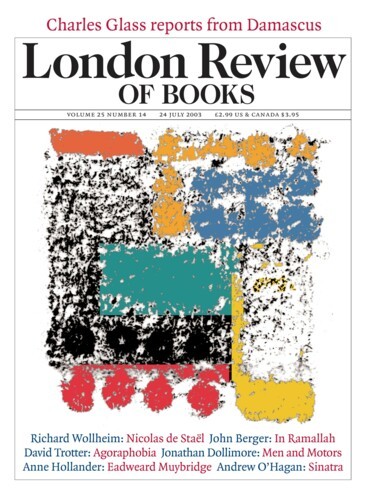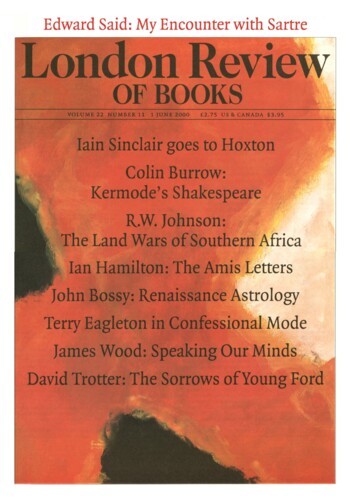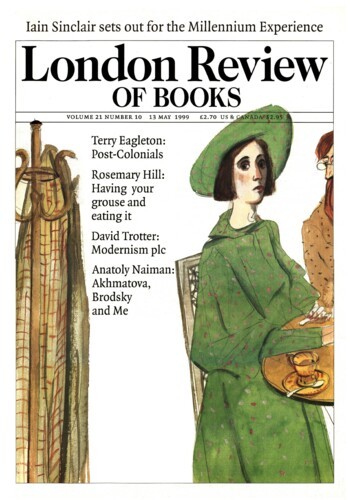Platz Angst: Agoraphobia
David Trotter, 24 July 2003
The last three decades of the 19th century were phobia’s belle époque. During this first phase of investigation there was, it must have seemed, no species of terror, however febrile, which could not talk its way immediately into syndrome status. In 1896, Théodule Ribot spoke of psychiatry’s inundation by a ‘veritable deluge’ of complaints, ranging from the...





